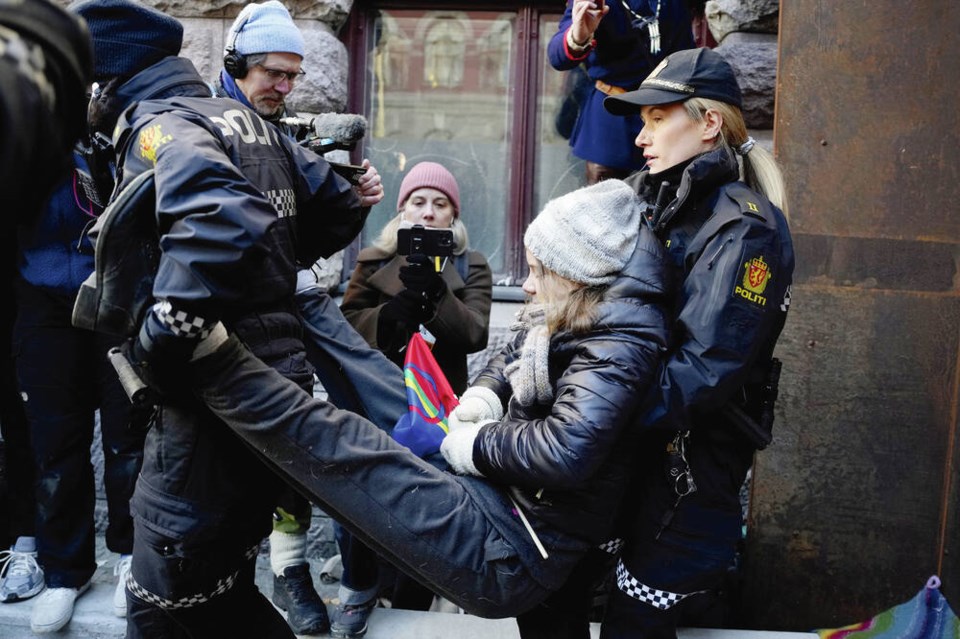Many feasible and effective options are available now to reduce greenhouse gas emissions and adapt to human-caused climate change, and the time to act is now, scientists say in the latest Intergovernmental Panel on Climate Change (IPCC) report, a summary of which was released this week.
In 2018, the IPCC highlighted the scale of the challenge required to keep warming to 1.5 °C. The report’s authors now say the challenge has grown in the five years since due to the ongoing increase in greenhouse gas emissions.
The report, which synthesizes the state of knowledge about climate change, puts the current level of global warming at between 1.1 and 1.3 °C above pre-industrial levels. More frequent and more intense extreme weather events are causing increasingly dangerous impacts on lives, livelihoods and natural systems.
Here in B.C., we’ve endured extreme heat, drought, flooding and larger and more extreme wildfires, as well as marine heat waves and some chokingly poor air quality over the past few years. We’ve had it relatively easy compared with other regions.
The report’s authors also say that, although climate adaptation and mitigation planning and implementation have progressed worldwide in the past five years, the current pace and scale are insufficient to tackle climate change. And plans now in place, if actually implemented, will not be enough to halt the trajectory we’re on.
In almost all emission scenarios addressed in the report, global warming will reach 1.5 °C, the threshold identified to avoid the worst of the global climate catastrophes, by the early 2030s.
It’s no wonder then that nearly half of 1,000 young 91Ô´´s surveyed recently by Lakehead University researchers think humanity is doomed, and 73 per cent find the future frightening.
Seventy-eight per cent reported that climate change impacts their overall mental health, and about 40 per cent said their feelings about climate change negatively affect their daily life.
The study replicates in Canada a 2021 international study in which researchers surveyed 1,000 young people aged 16 to 25 in each of 10 countries. More than 50 per cent of respondents reported sadness, anxiety, anger, powerlessness, helplessness and guilt. Seventy-five per cent said that they think the future is frightening.
“This research shows that inaction at the systemic and structural levels shapes the experiences of climate emotions and anxiety among young people across Canada,” lead author Lindsay Galway wrote about the 91Ô´´ study. “While we consider difficult climate emotions and anxiety appropriate responses to the climate crisis, given its impacts, scale and urgency, we also recognize the mental and emotional burden that young people are bearing.”
Despite all this, many of the 91Ô´´ study’s respondents indicated they have hope that it’s not too late to slow global warming. Seventy-one per cent of respondents believe that together we can do something. Half of these believe they can contribute.
Young people are taking action in their own way. Given all of the above, some are using tactics that are jarring and sometimes illegal.
Blocking bridges and highways is meant to disrupt and make headlines. Throwing stuff on iconic artworks and museum specimens is likewise a call for attention. As the activists reason, what’ll the value of art be in the future if you can’t eat? Why be precious about van Goghs and Vermeers, Botticellis and Boccionis, Klimts and Carrs, and dinosaurs and mammoths when future wildfires, floods, droughts and disease will destroy far more besides?
Yes, they’re trying to get our attention. Yes, they’re trying to move us to act. Yes, far more constructive tactics exist — ones that don’t alienate the people best able to make things happen now.
And, yes, many young people are choosing those more constructive tactics to influence their families, friends and communities to make better choices and speed the transition in any way they can.
But few young people today have the resources, know-how, options or support to make widespread social and economic change happen quickly. By the time they gain that wherewithal, the future the IPCC is predicting will have arrived. The early 2030s and the noted 1.5 °C is but 10 years away, after all.
It’s up to older folk now to pay attention now and start taking climate change seriously. As a society, we owe it to the kids to help them have a viable future.



